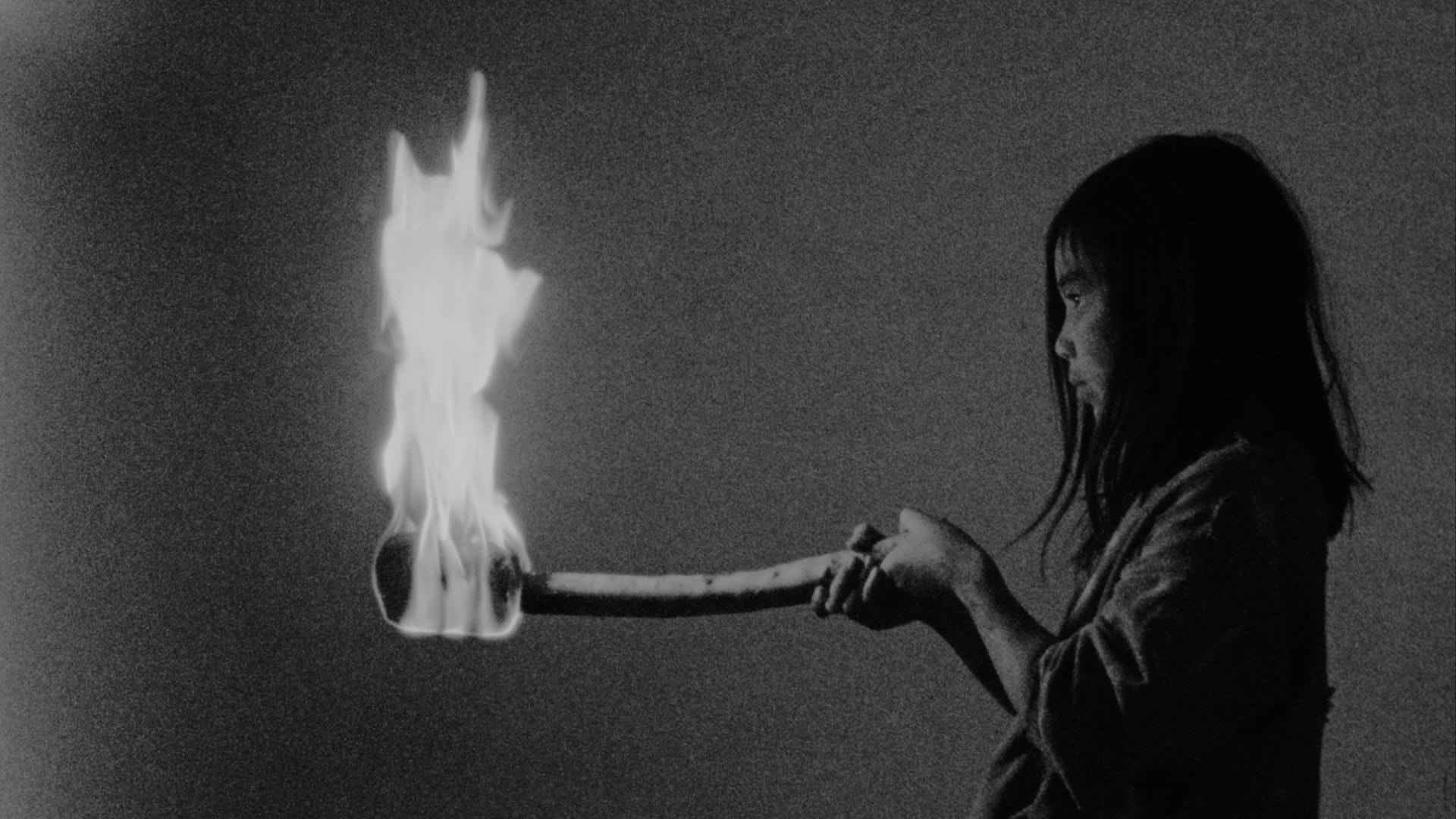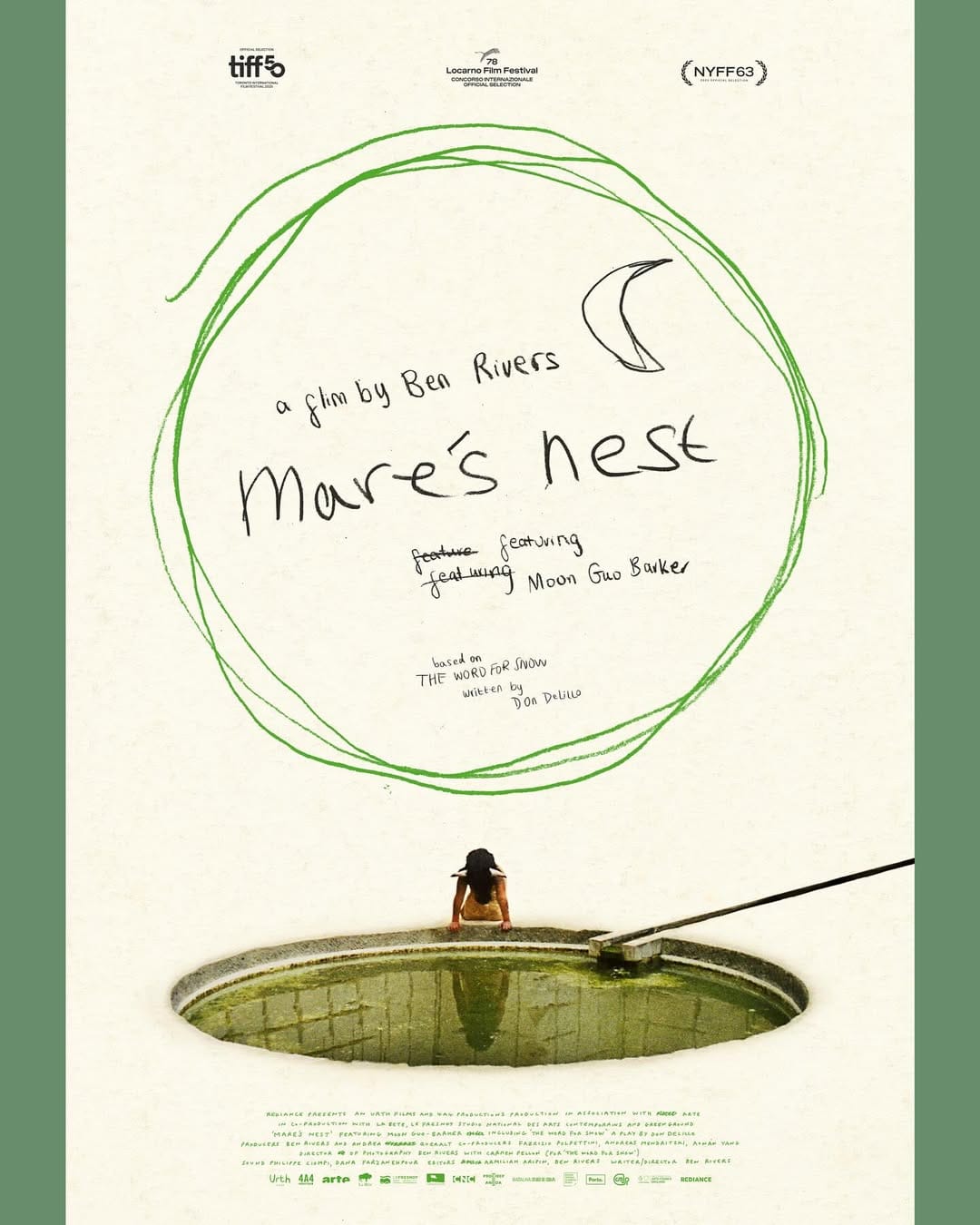Mare's Nest
BFI LFF 2025: A mesmerizing dreamscape that occasionally loses its narrative anchor
Do you ever wake up and try to recall a dream from the night before, and the residue is disjointed occurrences in places unknown that both feel real and unreal? That is what watching Ben Rivers’ latest film, Mare’s Nest (inspired and based on Don DeLillo’s The Word for Snow), feels like, in the best possible way.
The world at first appears timeless and isolated, but the era when it occurs is not immediately clear. Moon, who is about ten years old (Moon Guo Barker), wanders through landscapes scarcely inhabited by children, whose lives are free from the institutions of the past. Slowly, in sequences like the black-and-white “Word for Snow” hut scene, it becomes clear that this is a post-apocalyptic universe. Civilisation has ended, and remnants of knowledge and culture survive in fragments. The movie trusts the audience to come to this understanding bit by bit, allowing interpretation and reflection to happen naturally.

The film is a mosaic of experiences. It begins with Moon picking up a wandering tortoise on the road and pondering molecules and evolution, as if reciting the remnants of a forgotten science. Next, she participates in a silent communal ritual in a great cave, followed by barbecuing and eating fish – a beautiful, wordless sequence that feels both ancient and otherworldly.
The DeLillo-inspired scene is shot in stark black and white. Moon sits with three girls around a fire in a hut; one speaks in dense, prophetic aphorisms – “All languages are one,” “Animals are extinct,” “The word for snow becomes the snow.” Another interprets her words, explaining the minimalist but profound ideas in clearer terms. The scene communicates the fragility of language and the weight of knowledge in a world that has lost so much.
In Lithica labyrinth in Menorca, Spain, Moon and the other children confront a Minotaur-like figure. Together, they isolate it, sending it to the center of the maze before departing as a group, a subtle act of triumph and solidarity. Later, she explores an underground city of the past, consisting of frozen adults perfectly preserved like the ghosts of Pompeii. Her quiet disdain reflects a rejection of the old world and its mistakes.
Mare’s Nest is a feast for the eyes. The dry landscapes of Menorca and the damp grasslands of Wales shine with beauty and barrenness, and the costumes and textures evoke timelessness. Rivers’ editing is deliberately fragmented, half dream, half meditation, alternating between dialogue-heavy philosophical segments and long stretches of silence. The poster is strikingly effective. The film occasionally flirts with outright arthouse abstraction, yet its narrative and human focus rein it in, a tension that grounds and also constrains it.
In the final sequence, French punk band Frustration’s “Too Many Questions” plays, its frantic, insistent energy resonating with the reflective, enigmatic atmosphere of the film. The song punctuates Moon’s journey, suggesting that curiosity, resistance, and hope continue to exist in a shattered world as she drives off into the distance in a barren desert.
For all its apocalyptic structure, the film ends on a note of restrained hope for the future. Mare’s Nest defies explanation; it invites the viewer to feel, interpret, and linger in its world. Ben Rivers offers a rare experience, a filmic dream you can almost remember: strange, beautiful, and quietly intense.

Science Fiction/Fantasy
Director: Ben Rivers
Starring: Moon Guo Barker
Run time: 98 min
Release date: Limited release









